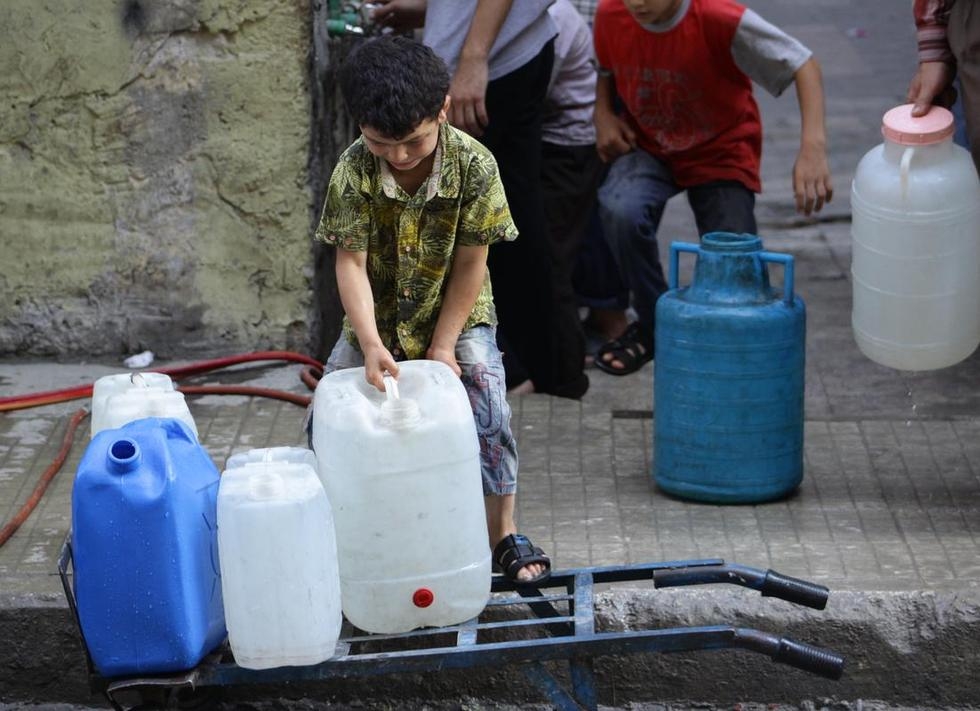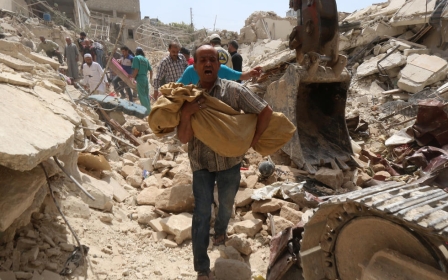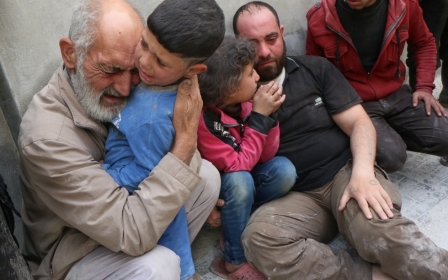What will happen to the children of Aleppo and Syria?

Eid al-Fitr, a religious holiday directly after Ramadan - the holy month of fasting in Islam - is supposed to be a joyous occasion, especially for children who could always expect new clothes, toys, fun games and extra pocket money.
Not so for the children of Aleppo, many of whom have already lived through four wartime Eids, and spent this one hauling plastic containers of water from nearby wells to their homes. The water and power supply had been cut to the city for three weeks, and the only way to get water was to queue up outside communal wells in the sweltering summer heat, a job mostly left to minors as the adults were too exhausted by their ritual fast. Instead of playing during the school break, this is how many children in Aleppo have spent their summer so far. But those were the lucky ones, they at least still had homes and schools to go to, many others do not.
A sad sight in Aleppo are the destitute children living on the streets of the city. Many are orphans, some are too little to even speak; most do not have any identification documents. You find them filthy, barefoot and dressed in rags, huddled asleep on pavements, parks or next to the exhaust pipes of generators if it’s a cold night. Before the war this was unheard of, now it’s just another sad fact of life like the constant shelling and random death in this shattered city.
This is one of the most striking images of what a war does to society, how it strips it of its humanity little by little until every last vestige is gone. The humanitarian crisis here only seems to be getting worse day by day. There is no let up and aid groups are stretched to the limit and can hardly cope.
Orphans of the east
The worst offender though is the Islamic State (IS) which actively recruits and trains hundreds of children to fight, even using some to carry out suicide bombings or beheadings. Those children are only taught blind hatred, they become weaponised human drones in what must be the most reprehensible crime man has ever committed in times of war. It is estimated that 50 children under the age of 16 have died so far this year fighting for the ISIS in Syria.
But the largest loss of life among Syria’s children has come from the bombing of rebel-held towns and cities by government forces through so-called barrel bombs, unguided heavy munitions dropped from huge heights by helicopters. They are indiscriminate by nature, and end up killing far more civilians than rebel fighters in the often tightly packed residential blocks where they land. In east Aleppo city alone, thousands of people have been killed this way, a significant percentage of whom were children, some as they slept in their homes.
The vast devastation that has laid waste to many parts of the country and displaced millions of its inhabitants has also taken a much larger toll on its most vulnerable, the children. Many now have little or no access to education in squalid refugee camps, whereas before the conflict education was mandatory and free. Instead, they are forced to work - or beg - to help their families survive.
There are an estimated 4 million Syrian refugees living in bordering countries and there are simply not enough resources to cope; worse still aid is being cut back in many instances. Stuck in limbo with no hope and no future, they await the end of a war which does not seem to be in sight, at least not in time to save what little is left of their childhood and its innocence.
Syria’s future – it’s children - is being blighted. Even if the war were to end tomorrow, there is no telling the extent or permanence of the psychological scars and trauma caused to the most fragile of its people. How do you rehabilitate a child which has never known anything but killing and war? How do you teach it to hold a book instead of a gun, or to not fear death with every loud noise? How do you teach it that there are other things in the world besides evil and hate? That there is hope and love too? Those will be the hardest challenges to overcome by far in a post-war Syria.
- Edward Dark is MEE's Aleppo-based columnist and writes under a pseudonym.
The views expressed in this article belong to the author and do not necessarily reflect the editorial policy of Middle East Eye.
Photo: A young boy collects water from a truck in Mashhad neighbourhood in Aleppo on 16 July, 2015. While the opposition controlled areas in Aleppo have been facing power cuts, Mashhad neighbourhood has been facing also water cuts for the last 15 days. (AA)
New MEE newsletter: Jerusalem Dispatch
Sign up to get the latest insights and analysis on Israel-Palestine, alongside Turkey Unpacked and other MEE newsletters
Middle East Eye delivers independent and unrivalled coverage and analysis of the Middle East, North Africa and beyond. To learn more about republishing this content and the associated fees, please fill out this form. More about MEE can be found here.





